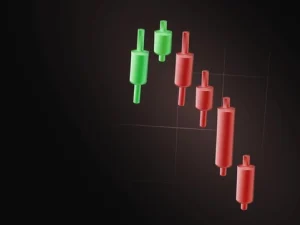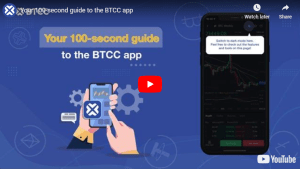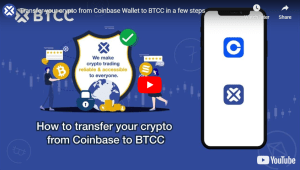Omar Zaki Crypto: Who Is He and Why Is He Controversial in the Blockchain World?
Omar Zaki is a blockchain developer and DeFi strategist who gained notoriety for his involvement in several early crypto projects. However, he is perhaps best known for facing enforcement action from the U.S. Securities and Exchange Commission (SEC) for operating an unregistered investment fund in 2019.
This article explores Omar Zaki’s crypto background, the SEC charges, and his later involvement in the decentralized finance (DeFi) space, especially with protocols like Compound Finance. We’ll also dive into whether he’s active today, and what lessons his story offers to investors and builders in 2025.
Early Life and Education of Omar Zaki
Key facts:
•Name: Omar Zaki
•Education: Yale University
•Specialization: Quantitative finance, blockchain, smart contracts
The First Major Incident: SEC vs Omar Zaki
Key Allegations:
•Operating an investment fund without SEC registration
•Misleading investors about the fund’s legal status
•Managing over $1 million in crypto assets during the fund’s active period
Post-SEC Career: Omar Zaki and Compound Finance
His association with Compound has raised ethical questions:
•Should individuals previously flagged by the SEC be allowed to build core financial infrastructure?
Public Perception: Crypto Genius or Regulatory Nightmare?
Is Omar Zaki Still Active in Crypto in 2025?
/ You can claim a welcome reward of up to 30,000 USDT🎁\
Lessons from the Omar Zaki Case for Crypto Investors
Omar Zaki Crypto and the Broader Ethics of DeFi
Related Cases: Other Developers With Legal Trouble
This shows a recurring trend: talented developers launching disruptive products, only to run afoul of regulators.
Will the SEC Come After Omar Zaki Again?
Conclusion: The Legacy of Omar Zaki in the Crypto Ecosystem
For more detailed market analysis, strategies, and educational resources, visit BTCC Academy and stay ahead of the curve in the rapidly evolving crypto space.
How to Trade Crypto on BTCC?
This brief instruction will assist you in registering for and trading on the BTCC exchange.
Step 1: Register an account
The first step is to hit the “Sign Up” button on the BTCC website or app. Your email address and a strong password are all you need. After completing that, look for a verification email in your inbox. To activate your account, click the link in the email.

Step 2: Finish the KYC
The Know Your Customer (KYC) procedure is the next step after your account is operational. The main goal of this stage is to maintain compliance and security. You must upload identification, such as a passport or driver’s license. You’ll receive a confirmation email as soon as your documents are validated, so don’t worry—it’s a quick process.

Step 3. Deposit Funds
After that, adding money to your account is simple. BTCC provides a range of payment options, such as credit cards and bank transfers. To get your money into your trading account, simply choose what works best for you, enter the amount, and then follow the instructions.
- Fiat Deposit. Buy USDT using Visa/Mastercard (KYC required).
- Crypto Deposit. Transfer crypto from another platform or wallet.

Step 4. Start Trading
If you wish to follow profitable traders, you might go for copy trading, futures, or spot trading. After choosing your order type and the cryptocurrency you wish to trade, press the buy or sell button. Managing your portfolio and keeping track of your trades is made simple by the user-friendly interface.

Look more for details: How to Trade Crypto Futures Contracts on BTCC
BTCC FAQs
Is BTCC safe?
Based on its track record since 2011, BTCC has established itself as a secure cryptocurrency exchange. There have been no reports of fraudulent activity involving user accounts or the platform’s infrastructure. By enforcing mandatory know-your-customer (KYC) and anti-money laundering (AML) procedures, the cryptocurrency trading platform gives consumers greater security. For operations like withdrawals, it also provides extra security features like two-factor authentication (2FA).
Is KYC Necessary for BTCC?
Indeed. Before using BTCC goods, users must finish the Know Your Customer (KYC) process. A facial recognition scan and legitimate identification documents must be submitted for this process. Usually, it is finished in a few minutes. This procedure has the benefit of strengthening the security of the exchange and satisfying legal requirements.
Because their accounts will have a lower daily withdrawal limit, those who do not finish their KYC are unable to make deposits. It should be noted that those who present a legitimate ID without a facial recognition scan will likewise have restricted withdrawal options.
Is There a Mobile App for BTCC?
Indeed. For users of iOS and Android, BTCC has a mobile app. The exchange’s website offers the mobile app for download. Since both the web version and the mobile app have the same features and capabilities, they are comparable.
Will I Have to Pay BTCC Trading Fees?
Indeed. BTCC levies a fee for trade, just like a lot of other centralised exchanges. Each user’s VIP level, which is unlocked according to their available money, determines the different costs. The BTCC website provides information on the charge rates.
Can I Access BTCC From the U.S?
You can, indeed. According to its website, BTCC has obtained a crypto license from the US Financial Crimes Enforcement Network (FinCEN), which enables the cryptocurrency exchange to provide its services to investors who are headquartered in the US.
According to BTCC’s User Agreement document, its goods are not allowed to be used in nations and organisations that have been sanctioned by the United States or other nations where it has a licence.
BTCC Guide:
- How to Trade Crypto Futures Contracts on BTCC
- BTCC Guide-How to Deposit Crypto on BTCC?
- What is Crypto Futures Trading – Beginner’s Guide
- What is Leverage in Cryptocurrency? How Can I Trade at 100X Leverage?
- BTCC Review 2024: Best Crypto Futures Exchange
Crypto Buying Guides:
- How To Buy Bitcoin (BTC)
- How To Buy Picoin
- How To Buy Ethereum (ETH)
- How To Buy Dogecoin (DOGE)
- How To Buy Pepe Coin (PEPE)
- How To Buy Ripple (XRP)
Crypto Prediction:
- Ethereum (ETH) Price Prediction 2024, 2025, 2030 — Will ETH Reach $10,000?
- Ethereum Price Prediction 2024, 2025, 2030: How High Can ETH Go in 2024?
- Bitcoin (BTC) Price Prediction 2024, 2025, 2030 — Is BTC a Good Investment?
- Ripple (XRP) Price Prediction 2024, 2025, 2030 — Will XRP Reach $1 After SEC Lawsuit?
- Pi Coin Price Prediction 2024,2025,2030 — Is Pi Coin a Good Buy?
- Pepe (PEPE) Price Prediction 2024, 2025, 2030 – Will PEPE Reach $1
FAQs
Who is Omar Zaki in crypto?
Omar Zaki is a blockchain developer and DeFi strategist known for his early crypto hedge fund and suspected involvement in Compound Finance.
What did the SEC charge Omar Zaki with?
A: He was charged with operating an unregistered investment fund and misleading investors in 2019.
What is Omar Zaki’s link to Compound?
He was reportedly involved in early-stage development or strategic advisory, though not officially listed as a founder.
Is Omar Zaki a scammer?
While he settled SEC charges without admitting guilt, opinions in the community are divided. Investors should perform due diligence before engaging with any related projects.
Please be aware that all investments involve risk, including the potential loss of part or all of your invested capital. Past performance is not indicative of future results. You should ensure that you fully understand the risks involved and consider seeking independent professional advice suited to your individual circumstances before making any decision.
For any inquiries or feedback regarding this article, please contact us at: [email protected]
















